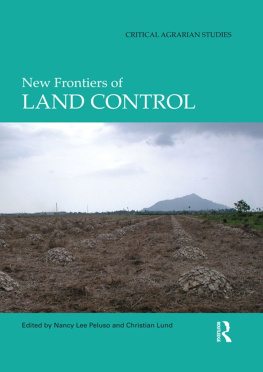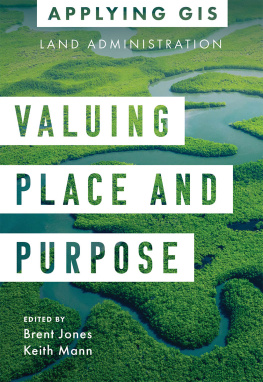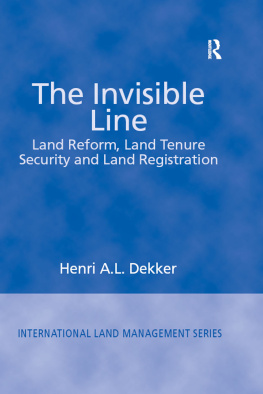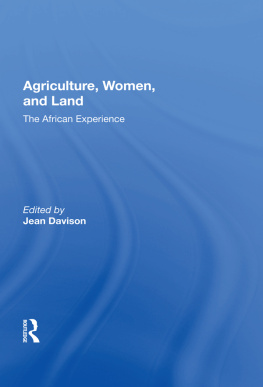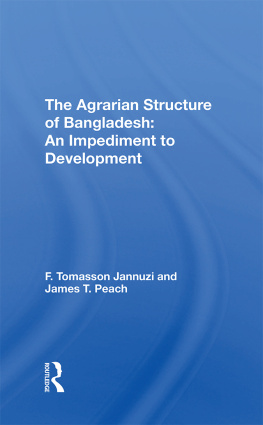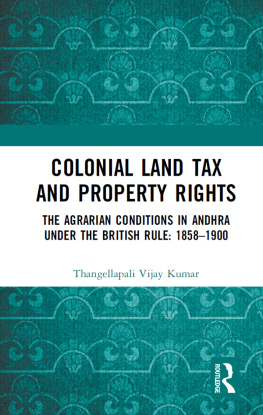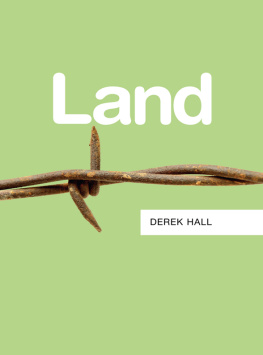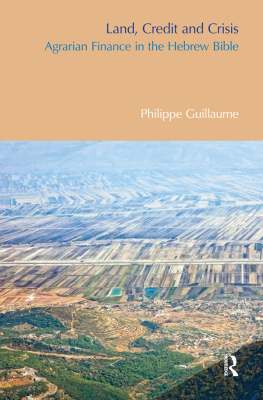Questions about land control have invigorated thinkers in agrarian studies and economic history since the nineteenth century. Exclusion, alienation, expropriation, dispossession, and violence animate histories of land use, property rights, and territories. More recently, agrarian environments have been transformed by processes of deagrarianization, urbanization, migration, and new forms of primitive accumulation. Even the classic agrarian question of how the social relations of agriculture will be influenced by capitalism has been reformulated at critical historical moments, reviving or producing new debates around the importance of land control.
The authors in this volume focus on new frontiers of land control and their active creation. These frontiers are sites where established power relationships are challenged by new enclosures and property regimes, producing new social and environmental dynamics in their stead. Contributors examine labor and production processes engaged by new configurations of actors, new agrarian and environmental subjects and the networks connecting them, and new legal and violent means of challenging established or imminent land controls. Overall we find that land control still matters, though in changed degrees and manners. Land control will continue to inspire struggles for a long time.
Critical Agrarian Studies
Series Editor: Saturnino M. Borras Jr.
Critical Agrarian Studies is the new accompanying book series to the Journal of Peasant Studies. It publishes selected special issues of the journal and, occasionally, books that offer major contributions in the field of critical agrarian studies. The book series builds on the long and rich history of the journal and its former accompanying book series, the Library of Peasant Studies (1973-2008) which had published several important monographs and special-issues-as-books.
Critical Perspectives in Rural Development Studies
Edited by Saturnino M. Borras Jr.
The Politics of Biofuels, Land and Agrarian Change
Edited by Saturnino M. Borras Jr., Philip McMichael and Ian Scoones
New Frontiers of Land Control
Edited by Nancy Lee Peluso and Christian Lund
Outcomes of Post-2000 Fast Track Land Reform in Zimbabwe
Edited by Lionel Cliffe, Jocelyn Alexander, Ben Cousins and Rudo Gaidzanwa
Green Grabbing: A New Appropriation of Nature
Edited by James Fairhead, Melissa Leach and Ian Scoones
New Frontiers of Land Control
Edited by
Nancy Lee Peluso and Christian Lund
First published 2013
by Routledge
2 Park Square, Milton Park, Abingdon, Oxon, OX14 4RN
Simultaneously published in the USA and Canada
by Routledge
711 Third Avenue, New York, NY 10017
Routledge is an imprint of the Taylor & Francis Group, an informa business
2013 Taylor & Francis
This book is a reproduction of the Journal of Peasant Studies, vol. 38, issue 4. The Publisher requests to those authors who may be citing this book to state, also, the bibliographical details of the special issue on which the book was based.
All rights reserved. No part of this book may be reprinted or reproduced or utilised in any form or by any electronic, mechanical, or other means, now known or hereafter invented, including photocopying and recording, or in any information storage or retrieval system, without permission in writing from the publishers.
Trademark notice: Product or corporate names may be trademarks or registered trademarks, and are used only for identification and explanation without intent to infringe.
British Library Cataloguing in Publication Data
A catalogue record for this book is available from the British Library
ISBN13: 978-0-415-52990-7 (hbk)
ISBN13: 978-0-415-53313-3 (pbk)
Typeset in Times New Roman
by Taylor & Francis Books
Publishers Note
The publisher would like to make readers aware that the chapters in this book may be referred to as articles as they are identical to the articles published in the special issue. The publisher accepts responsibility for any inconsistencies that may have arisen in the course of preparing this volume for print.
Contents
Nancy Lee Peluso and Christian Lund
Alice B. Kelly
Catherine Corson
Amrita Malhi
Kevin Woods
Jacobo Grajales
Megan Ybarra
Nancy Lee Peluso
Derek Hall
Tracey Muttoo Osborne
Christian Lund
Nancy Lee Peluso and Christian Lund
Land questions have invigorated agrarian studies and economic history, with particular emphases on its control, since Marx. Words such as exclusion, alienation, expropriation, dispossession, and violence describe processes that animate land histories and those of resources, property rights, and territories created, extracted, produced, or protected on land. Primitive and on-going forms of accumulation, frontiers, enclosures, territories, grabs, and racializations have all been associated with mechanisms for land control. Agrarian environments have been transformed by processes of de-agrarianization, protected area establishment, urbanization, migration, land reform, resettlement, and repeasantization. Even the classic agrarian question of how agriculture is influenced by capitalism has been reformulated multiple times at transformative conjunctures in the historical trajectories of these processes, reviving and producing new debates around the importance of land control.
The authors in this collection focus primarily on new frontiers of land control and their active creation. These frontiers are sites where authorities, sovereignties, rights, and hegemonies of the recent past have been challenged by new enclosures, property regimes, and territorializations, producing new urban-agrarian-natured environments, comprised of new labor and production processes; new actors, subjects, and networks connecting them; and new legal and violent means of challenging previous land controls. Some cases augment analytic tools that had seemed to have timeless applicability with new frameworks, concepts, and theoretical tools.
What difference does land control make? These contributions to the debates demonstrate that the answers have been shaped by conflicts, contexts, histories, and agency, as land has been struggled over for livelihoods, revenue production, and power.
Introduction
What difference does land control make? to old and new agrarian questions, to growers and landlords, to land managers with various goals: extraction, production, accumulation, conservation, and governance? The land question has invigorated agrarian studies and economic history since Marx and early twentieth century writers on agrarian questions. Various transformative moments have inspired and revived debates around land control: the spread of colonialism, the rise of nation-states and nationalisms, the invention and triumphalism of global markets, collectivizations, and privatizations. Issues of land use, labor practice, and forms of social control have animated these contexts and questions, including engendered production, slavery, tied labor, Green Revolutions, the purported end of the peasantry, the future of family farming, and wage labor. Land control, alienation, and dispossession have played classic and contemporary roles in primitive and ongoing forms of accumulation, with new frontiers, various kinds of territories, and ethnic and racialized conflicts emerging at virtually all levels. Even the classic agrarian question of how agriculture is influenced by the capitalist economy has been reformulated multiple times (Aschmann 1988, Bernstein 2005, Byers 1991, Chayanov 1986, Kautsky 1988, Lenin 1956, Mann 1990, Watts and Goodman 1997). The creation of the idea of natural resources and the mapping of state-controlled territories on the land for the purpose of their governance created new sorts of land control when they emerged, and have generated many pages in the literature.

